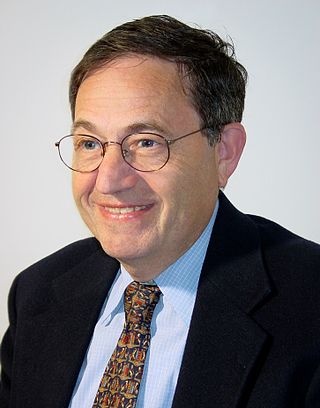
Harvard Medical School (HMS) is the medical school of Harvard University and is located in the Longwood Medical Area in Boston, Massachusetts. Founded in 1782, HMS is one of the oldest medical schools in the United States, and provides patient care, medical education, and research training through its 15 clinical affiliates and research institutes, including Massachusetts General Hospital (MGH), Boston Children's Hospital, Dana–Farber Cancer Institute, Brigham and Women's Hospital, Beth Israel Deaconess Medical Center, Mount Auburn Hospital, McLean Hospital, Cambridge Health Alliance, The Baker Center for Children and Families, Spaulding Rehabilitation Hospital, and others

Beth Israel Deaconess Medical Center (BIDMC) in Boston, Massachusetts is a teaching hospital of Harvard Medical School and one of the founding members of Beth Israel Lahey Health. It was formed out of the 1996 merger of Beth Israel Hospital and New England Deaconess Hospital. Among independent teaching hospitals, Beth Israel Deaconess Medical Center has ranked in the top three recipients of biomedical research funding from the National Institutes of Health. Research funding totals nearly $200 million annually. BIDMC researchers run more than 850 active sponsored projects and 200 clinical trials. The Harvard-Thorndike General Clinical Research Center, the oldest clinical research laboratory in the United States, has been located on this site since 1973.

Massachusetts General Hospital is a teaching hospital located in the West End neighborhood of Boston, Massachusetts. It is the original and largest clinical education and research facility of Harvard Medical School/Harvard University, and houses the world's largest hospital-based research program with an annual research budget of more than $1.2 billion in 2021. It is the third-oldest general hospital in the United States with a patient capacity of 999 beds. Along with Brigham and Women's Hospital, Mass General is a founding member of Mass General Brigham, formerly known as Partners HealthCare, the largest healthcare provider in Massachusetts.

Brigham and Women's Hospital is the second largest teaching hospital of Harvard Medical School and the largest hospital in the Longwood Medical Area in Boston, Massachusetts. Along with Massachusetts General Hospital, it is one of the two founding members of Mass General Brigham, the largest healthcare provider in Massachusetts. Giles Boland, MD, serves as the hospital's current president.

Cathy E. Minehan was President and Chief Executive Officer of the Federal Reserve Bank of Boston from 1994 until her retirement in July 2007. Minehan also served as a member of the Federal Open Market Committee, the body responsible for U.S. monetary policy. She was "appointed Dean of the School of Management of Simmons College, a private university, in August 2011 and is Managing Director of Arlington Advisory Partners, a private advisory services firm."
Dana–Farber Cancer Institute (DFCI) is a comprehensive cancer treatment and research center in Boston, Massachusetts. Dana-Farber is the founding member of the Dana-Farber/Harvard Cancer Center, Harvard's Comprehensive Cancer Center designated by the National Cancer Institute, and one of the 15 clinical affiliates and research institutes of Harvard Medical School.

Massachusetts Eye and Ear is a specialty hospital located in Boston, Massachusetts, United States, which focuses on ophthalmology (eye), otolaryngology (ear/nose/throat), and related medicine and research. Founded in 1824 as the Boston Eye Infirmary (BEI), it has also been known as the Massachusetts Charitable Eye and Ear Infirmary (MCEEI) and Massachusetts Eye and Ear Infirmary (MEEI). It is a teaching partner of Harvard Medical School.

The Lahey Hospital & Medical Center, formerly known as the Lahey Clinic, is a physician-led nonprofit teaching hospital of Tufts University School of Medicine based in Burlington, Massachusetts. The hospital was founded in Boston in 1923 by surgeon Frank H. Lahey, M.D., and is managed by Beth Israel Lahey Health. U.S. News & World Report has cited it several times on its list of "America's Best Hospitals" in the category of urology.
Samuel Osiah Thier was professor of Medicine and Health Care Policy at Harvard University. He earned his medical degree at the State University of New York Upstate Medical University in 1960. He previously served as the president of Brandeis University from 1991–1994 and the president of the Massachusetts General Hospital from 1994-96.

Tufts Medical Center, a 15-building campus located in Boston, Massachusetts, is a downtown Boston hospital midway between Chinatown and the Boston Theater District.

Newton-Wellesley Hospital (NWH) is a community teaching medical center located in Newton, Massachusetts on Washington Street. It is affiliated with Tufts University School of Medicine and Harvard Medical School. Founded in 1881, part of its campus is listed on the National Register of Historic Places as the Newton Cottage Hospital Historic District.

John Hartwell Harrison was an American urologic surgeon, professor, and author. He performed the first human organ removal for transplant to another. This was a pivotal undertaking as a member of the medical team that accomplished the world’s first successful kidney transplant. The team conducted its landmark transplant between identical twins in 1954.
Gary L. Gottlieb, is a prominent psychiatrist, healthcare executive and healthcare investor who served as CEO of Partners in Health from 2015-2019.

Ferenc Andras Jolesz was a Hungarian-American physician and scientist best known for his research on image guided therapy, the process by which information derived from diagnostic imaging is used to improve the localization and targeting of diseased tissue to monitor and control treatment during surgical and interventional procedures. He pioneered the field of Magnetic Resonance Imaging-guided interventions and introduced of a variety of new medical procedures based on novel combinations of imaging and therapy delivery.
David F. M. Brown is an American physician, emergency medicine specialist, teacher, researcher, and administrator. He is the MGH Trustees Endowed Professor of Emergency Medicine at Harvard Medical School and served as Chief of the Department of Emergency Medicine at Massachusetts General Hospital. from 2013-2021 when he became President of Massachusetts General Hospital. In 2024, his role was expanded to President, Academic Medical Centers, Mass General Brigham, overseeing both Massachusetts General and Brigham and Women’s Hospitals.
Daniel David Federman, was an American endocrinologist and the Carl W. Walter Distinguished Professor of Medicine and the dean for medical education at Harvard Medical School. He helped change medical education at through its New Pathway curriculum around the early 1990s, and his work helped create the field of genetic endocrinology. Federman also worked for over thirty years at Boston's Brigham and Women's Hospital, a Harvard Medical School teaching hospital in the Longwood Medical and Academic Area.

Cooley Dickinson Hospital is a nonprofit community hospital located in Northampton, Massachusetts. It is the primary hub of Cooley Dickinson Health Care, a regional network of primary and specialty care medical providers, an affiliate of Massachusetts General Hospital, which is part of Mass General Brigham.
Reshma Kewalramani, is the president and chief executive officer of Vertex Pharmaceuticals, a biotechnology company based in Boston, Massachusetts, as of April 1, 2020. She is the first female CEO of a large US biotech company. She was previously the chief medical officer and vice president of global medicines development and medical affairs at Vertex.
Ali S. Raja is an American emergency physician and researcher. He is the Executive Vice Chair of the Department of Emergency Medicine at Massachusetts General Hospital, and a professor at Harvard Medical School.

Beth Israel Lahey Health (BILH) is a non-profit integrated health system based in Massachusetts, with locations in New Hampshire. Formed through the 2019 merger of two large Massachusetts health systems led by Beth Israel Deaconess Medical Center and Lahey Hospital & Medical Center, it is the largest health system in Massachusetts by count of hospitals, with 10 acute-care hospitals in the state.












